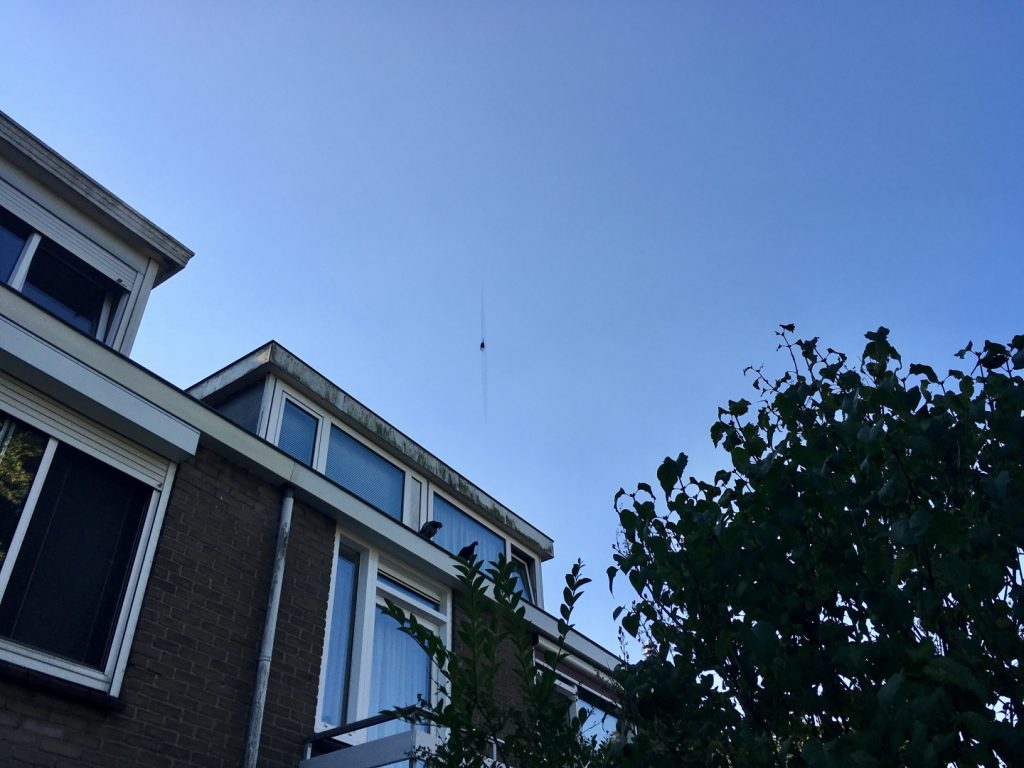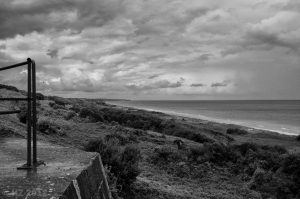High Hanging Fruits
The picture above I took in the early this morning. I went outside and noted a small black dot in my view looking at the blue sky. My first thought was a fly of some sort. This part of the year there a many of these pesky creatures buzzing around in my backyard. But it wasn’t. I wasn’t. It didn’t move… It turned out to be a spider. This small creature had managed to build a web spanning the many meters between the different pieces of foliage. Truly amazing. I then gave it some thought and realized what this little guy had actually done. He is not the only spider in my backyard. He is not the smallest one, in fact he’s probably one of the “top dogs”. But whether big or small he is competing with his fellow spiders for the flies that are buzzing around. He clearly had decided to go for the high hanging fruit. Why would he have done that?
Looking at the many organizations we have most of the managers prefer by far the low hanging fruits. In the many meetings, workshops and whatever that I have been part the first and foremost remark that is made was: we need to go for the low hanging fruit first. Any plan that came from such sessions never went beyond the low hanging fruits. Probably expecting that after the first batch of low hanging fruit there would be a next to aim for.
So here is this smart spider in my backyard going for the high hanging fruits. In his case losing the competition means starvation. For him it is not important to be the best spider in the world. He needs to be better than the competition around him. He doesn’t care for a single moment that in the backyard of my neighbor there might be a bigger spider with an even bigger web. He doesn’t even care about the large spiders roaming the far flung corners of this planet. He needs to understand his direct environment. Who’s in it, what’s there to eat and how to be better then the other spiders around him. He’s a big guy. He’s the one that’s probably best at spanning large distances with his web. He could spin a web within the foliage. This could be stronger, or perhaps he could do it quicker, or it could be bigger if there is room for that in the first place. He could do a lot within the foliage but whatever he does there it is in direct competition with his fellow but smaller spiders. His strengths doesn’t really give him a large or sustainable advantage. If, on the other hand, he aims for the space between the foliage he does something the competition is unable to do. It’s more work but he creates for himself a unique position. One in which he doesn’t need to worry much about the competition. A blue sky or, to put this in recent management literature terms, a blue ocean.
Jan-Willem Boots is co-founder of Changing Games




